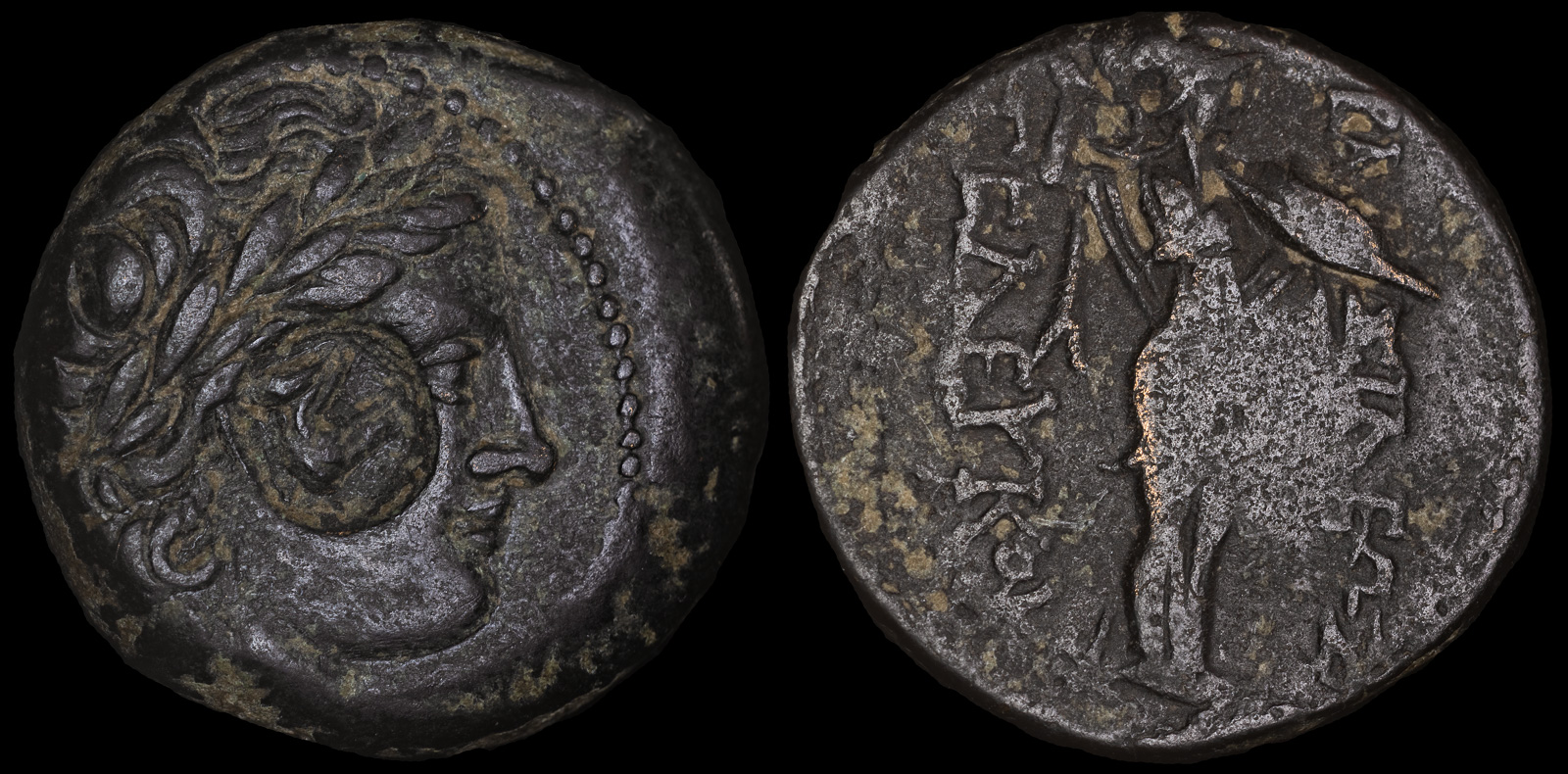
Seleukid King, Seleukos I
Antioch
312-281 BCE
Æ 21mm, 7.41g, 12h
Laureate head of Apollo r.; c/m: horned horse l.
R/ Athena Promachos standing r.
SC 15.2; HGC 9, 77
Antioch was one of the greatest cities of ancient times and had a rich history from its founding by Seleukos I Nikator in 300 BCE to its time under the Romans and Byzantines.
This is one of the first coins minted in Antioch and was shortly after the city’s founding by Seleukos. It isn’t a particularly rare coin, but I picked it up due to the countermark, which I still haven’t made light of. I did perform a search to find other issues with countermarks, but found none. The strike of the countermark was strong enough that it affected the other side.
During Roman times, its population may have reached 500,000 people, making it the third largest city in the Roman Empire after Rome and Alexandria. It would later play a tremendous role in the rise of Christianity.
The ruins of Antioch today are in Turkey, not far from Syria. Not much of the ancient city unfortunately remains, although archeologists continue to make interesting finds there.
May
Antioch founded by Seleukos I Nikator of the Seleukid dynasty.
Antioch becomes the capital of the Seleukid Empire.
A major earthquake strikes Antioch. Alexander Balas aids in the rebuilding.
Pompey winters at Antioch and destroys Apamea.
The hippodrome is completed in Antioch and fits 80,000 fans.
Julius Caesar visits Aigai during his campaign in the east. He also visits Antioch and declares its freedom.
Antigonos II Mattatias is taken to Antioch and executed. This ends the Hasmonean line.
Germanicus dies in Antioch.
An earthquake destroys much of Antioch. The city is rebuilt by Caligula.
While being visited by the Emperor Trajan, Antioch is severely damaged in an earthquake. The same earthquake heavily damages Apameia on the Axios.
Lucius Verus stays in Antioch, overseeing the Parthian campaign while indulging in luxury, reportedly earning a reputation for extravagance.
Birth of Aurelia Lucilla to Lucilla and Lucius Verus in Antioch.
192 CE
The Emperor Commodus choose to hold the Olympic Games in Antioch.
Julia Domna commits suicide in Antioch after the death of her son Caracalla.
June 8
Legions supporting Elagabalus defeat Macrinus and Diadumenian at the Battle of Antioch.
Severus Alexander begins a campaign against the Sassanids from Antioch.
Antioch is attacked by Shapur I. Roughly 100,000 inhabitants are slaughtered, many of them at the theater.
Valerian I recovers Antioch and returns Syria to Roman control.
March 15
Constantius II raises Constantius Gallus to Caesar and marries him to his sister Constantina. Constantius Gallus takes up residence in Antioch.
October
Jovian arrives to Antioch where the people are enraged. He orders the Library at Antioch burnt.
January
An uprising occurs in Antioch against Theodosius.
A significant earthquake causes much damage in Antioch.
One of the worst earthquakes in history kills roughly 250,000 people in Antioch.
Before Antioch can fully recover from a devastating earthquake two years earlier, another hits.
The Sassanian Persian King Khosrow I captures and sacks Antioch. The city is extensively plundered and many of its inhabitants are deported.
Yet another earthquake causes major damage in Antioch.